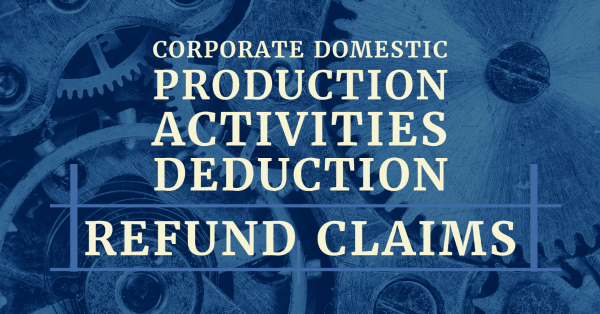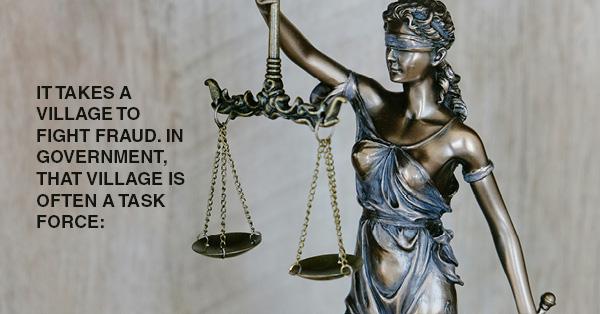Corporate Domestic Production Activities Deduction Refund Claims

In a News Release, IRS has said that it has received a wave of questionable amended returns and claims for tax benefits in the billions of dollars with respect to the now-repealed Domestic Production Activities Deduction (DPAD).The IRS will continue to audit and litigate these claims.
Background. Effective for tax years beginning after December 31, 2017, the Tax Cuts and Jobs Act (TCJA, PL 115-97), repealed Code Sec. 199. Before its repeal, Code Sec. 199 generally allowed qualifying businesses to claim a DPAD that was based on gross receipts derived from the lease, rental, license, sale, exchange, or other disposition of qualifying production property that the taxpayer manufactured, produced, grew or extracted, in whole or in significant part, in the U.S.
IRS is receiving questionable claims. IRS has received a wave of questionable amended returns and claims for DPAD tax benefits in the billions of dollars. IRS says that very high percentage of the claims are not properly supported by the taxpayers and that a large majority of the filings involve taxpayers who are claiming DPAD for the first time based on studies conducted after the fact, which contain unreasonable assumptions of facts and law.
In September of 2018, LB&I announced a campaign to risk assess claims or amended returns under the repealed section of the law.
In July 2020, IRS issued Legal Advice issued by Associate Chief Counsel 2020-007, which addressed examples of meritless Code Sec. 199 online software activity. See Chief Counsel discusses software and the domestic production activities deduction.
IRS will continue to audit this issue even though the section was repealed. Examiners are auditing these claims with the support of Chief Counsel, engineer specialists, and IRS's Corporate Income and Losses Practice Network. In many examination cases, once challenged, taxpayers have conceded 100% of the claim.
IRS has advised its examiners to consider Code Sec. 6676, Erroneous Claim for Refund or Credit, penalties, other applicable penalties, and referrals to the Office of Professional Responsibility, when appropriate.
Taxpayers and their advisors should ensure they have documentation to support their position and should expect that IRS may impose appropriate penalties unless taxpayers establish that they have reasonable cause. A study does not necessarily provide reasonable cause.
Taxpayers who have already filed can withdraw prior to IRS audit contact to avoid penalties.




